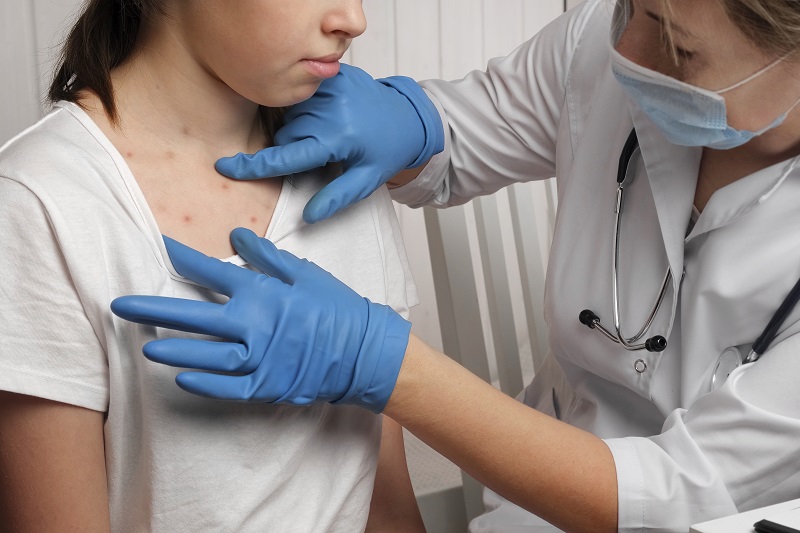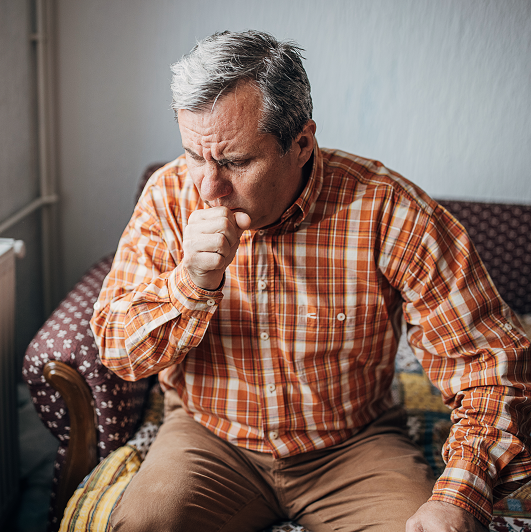Measles – What You Need to Know

October 31, 2018
Updated on 1/16/2023
Measles is a highly contagious and serious disease that’s caused by a virus. According to the Centers for Disease Control and Prevention (CDC), measles was a very common childhood illness before a vaccine was developed.
- There were more than 500,000 cases of measles each year resulting in 48,000 hospitalizations and 500 deaths.
- Additionally,1,000 people developed a chronic disability after a measles infection.
An effective measles vaccine was developed in the late 1960’s. With vaccination, measles cases have been dramatically reduced and practically eliminated in the United States. However, measles cases occur from time to time, primarily when people are exposed to measles when traveling to other places of the world. Outbreaks (or clusters of infections) have occurred in the U.S in communities where there are people who have not received the measles vaccine in the past.
If you hear about a measles outbreak in your area, Jerry Zuckerman, M.D., vice president of Infection Prevention and Control at Hackensack Meridian Health advises you to take these important steps:
Focus on prevention.
“Measles is 100% preventable by vaccination,” explains Dr. Zuckerman. “Vaccination is recommended for all children and is the best way to ensure your loved ones are protected from this serious infection.”
- Measles vaccine: The measles vaccine is given with the vaccines for mumps and rubella (MMR) and is usually given in two doses (one shot at 12 months and a second shot at 4 to 6 years of age) but can be given as early as 6 months of age in special situations such as travel or during an outbreak.
- MMRV vaccine: You can also get the MMRV vaccine (MMR plus varicella or chickenpox). MMRV is only approved for children between the ages of 12 months through 12 years. Ask your doctor which option is best for you or your child.
Know your options.
“Some people are too young or have health conditions that prevent them from being vaccinated,” adds Dr. Zuckerman. “Immunoglobulin is a medicine that has been shown to prevent measles if given within 6 days of exposure, but you must be aware of this option and consult with a doctor immediately if exposed.”
Understand who is at high risk.
Children less than 6 months of age, pregnant women without evidence of measles immunity, and people with weakened immune systems are at high risk of complications from measles and should speak to their doctor immediately if there’s any chance they’ve been exposed to the disease.
Look out for signs and symptoms.
Measles is a respiratory disease (in the lungs and breathing tubes) caused by the measles virus.
Symptoms include:
- Fever, often as high as 104 to 105 degrees
- Cough
- Stuffy or runny nose
- Conjunctivitis (pink eye)
- A rash two to five days after symptoms begin. The rash generally spreads downward from the head to the trunk to the lower extremities.
If you believe you have been exposed, call your doctor immediately.
“Measles spreads through the air by breathing, coughing or sneezing,” Dr. Zuckerman describes. “People infected with measles are infectious four days before a rash appears and continue to be infectious four days after the rash appears. It is highly contagious to anyone who has not been protected by previously receiving the measles vaccine.”
Find out if you’re protected.
“If you have a record indicating that you received two doses of a measles-containing vaccine, you are considered protected,” adds Dr. Zuckerman. “You can also have a blood test to confirm that you have protection. Finally, anyone born before 1957 is considered immune. Before 1957, all children were exposed to measles.”
Help us protect our patients.
“It can be extremely dangerous for people who are hospitalized to be exposed to measles and other viruses, such as the flu. If you or a family member has any sign of infection, especially during an outbreak or cold and flu season, we recommend that you please refrain from visiting patients in the hospital,” says Dr. Zuckerman.
Next Steps & Resources:
- Meet our source: Jerry Zuckerman, M.D.
- Ask your doctor if you and your family need measles vaccinations. To find a doctor near you, call 800-822-8905 or visit our website.
- For additional information, please visit CDC’s Measles website or the NJ Department of Health Measles website.
The material provided through HealthU is intended to be used as general information only and should not replace the advice of your physician. Always consult your physician for individual care.





